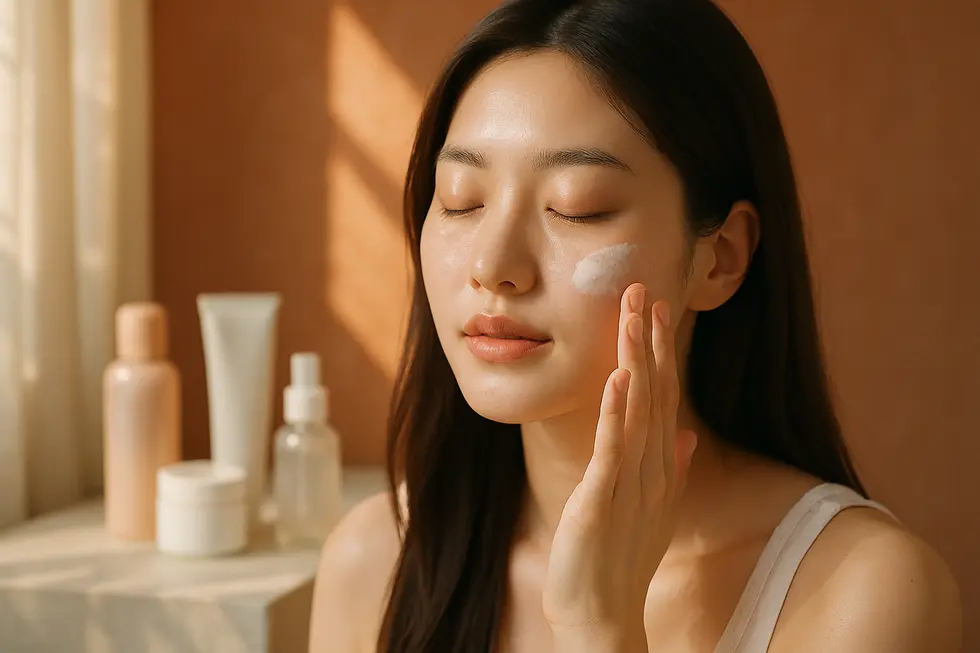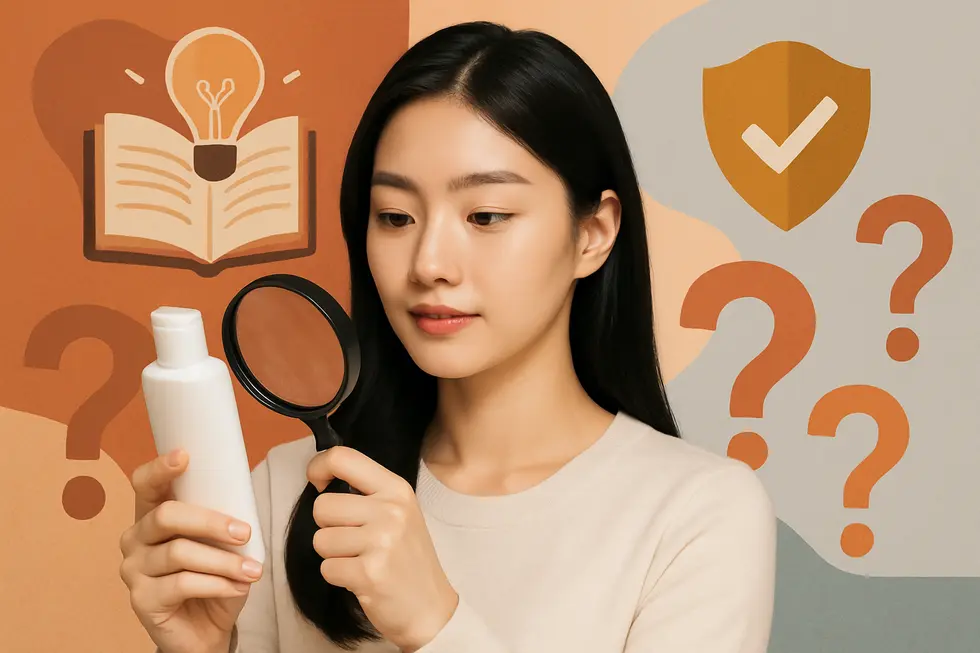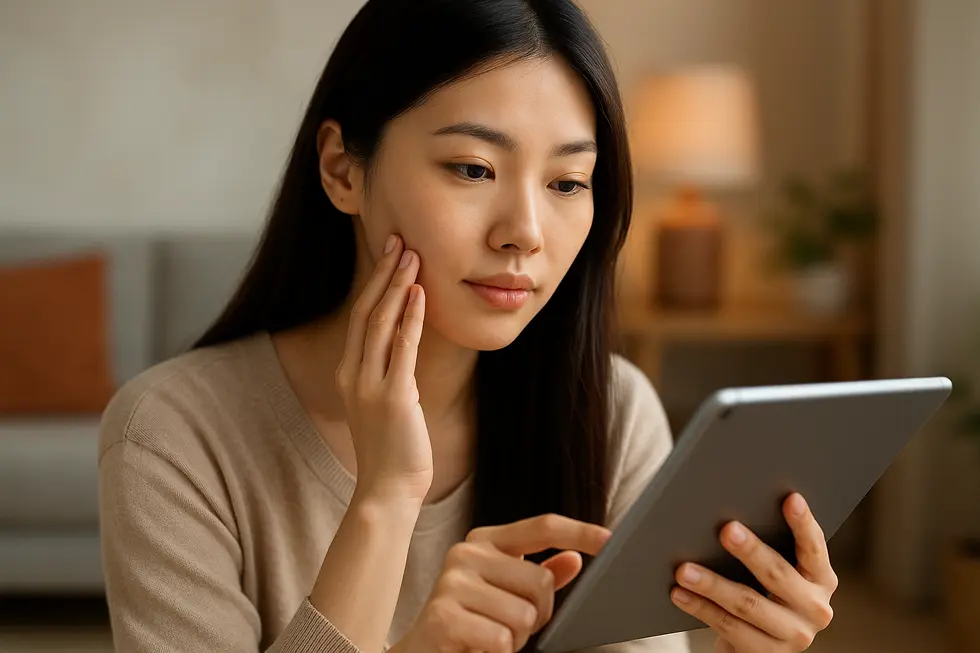
Okay, so you’ve heard about a skin treatment, maybe something called ‘Byryzn,’ or perhaps another name that just popped onto your radar. You get excited, thinking, “Could this be the solution to my skin concerns?!” You jump online, ready to dive into glowing testimonials and detailed explanations… and then… crickets? 🦗 It can be a little frustrating and honestly, a tiny bit worrying, right? 😊
When I first heard about some lesser-known treatments years ago, I felt the same way. It’s tempting to want the latest and greatest, but if information is scarce, how do you know if it’s safe or even real? That lack of readily available, clear information about something like ‘Byryzn’ got me thinking: what are the absolute essential steps we *all* need to take when researching *any* skin treatment we’re not familiar with? Because honestly, our skin is too important to take chances!
Since specific, widespread information on ‘Byryzn’ isn’t easily found right now – it might be super new, very niche, or perhaps known by a different name in broader medical contexts – let’s use this as a perfect opportunity. We’ll walk through the critical process of researching any skin treatment where the details aren’t immediately obvious. Think of this as your personal guide to becoming a savvy skin treatment investigator! 🕵️♀️

Contents
- Understanding the ‘How’ and ‘Why’ 🤔
- Show Me the Proof! Supporting Studies & Statistics 📊
- Let’s Talk Numbers: Price Range and Cost Structure 💰
- The Not-So-Fun Stuff: Side Effects and Precautions 🛡️
- Who is This For? Target Audience and Skin Types 👩💼👨💻
- Post-Treatment Care and Maintenance 🩹✨
- Your Research Checklist ✅
- Frequently Asked Questions ❓
Understanding the ‘How’ and ‘Why’ 🤔
So, you’ve encountered a treatment name. The very first step is to get past the name and understand what it actually *does*. This is especially crucial if you can’t find tonnes of info right away.
You need to ask: What are the procedure principles? How does it work on a biological level? Is it using energy (like laser, radiofrequency), physical methods (like microneedling, exfoliation), injections (like fillers, neurotoxins), or perhaps a chemical process? For something like a hypothetical ‘Byryzn,’ is it targeting collagen? Pigmentation? Texture? Knowing the mechanism helps you gauge its potential effectiveness and suitability for *your* specific skin issue.
Don’t be afraid to ask a potential provider for scientific literature or studies supporting the treatment’s claims. Reputable clinics should be able to provide this.
Then, there are the expected effects and outcomes. This is where the rubber meets the road! What results can you *realistically* expect? Is it permanent? How long do the results typically last? Are there documented before-and-afters (from credible sources, not just heavily filtered ads)? For an unknown treatment, look for information on the *science* behind it – does stimulating collagen with this specific method even make sense? What do dermatologists or medical journals say about the *technology* or *ingredients* used, even if they don’t mention the brand name?
It’s really about digging deeper than just the marketing! Exactly! 😊
Show Me the Proof! Supporting Studies & Statistics 📊
Any treatment worth considering should have some level of scientific backing. For established treatments, you’ll find peer-reviewed studies, clinical trial data, and statistics on success rates or side effect frequencies. For something less known, like our placeholder ‘Byryzn,’ this information might be harder to find.
If you can’t find specific studies for the *exact* treatment name, try searching for the underlying technology or active ingredients. For example, if ‘Byryzn’ hypothetically uses a specific type of radiofrequency, research studies on *that type* of radiofrequency for skin rejuvenation. This helps you assess the *potential* efficacy and safety based on related science.
Ask the provider: Are there any clinical studies? What are the key findings? What are the typical statistics they see in their clinic? A table can be super helpful here to compare different potential options:
| Factor | Potential Treatment A (e.g., common laser) | Potential Treatment B (e.g., ‘Byryzn’) |
|---|---|---|
| Mechanism | Targets pigment/collagen with light energy | Claims to stimulate X factor using Y method |
| Documented Effects | Reduces spots, improves texture (many studies) | Provider claims Z effect (limited/no external studies?) |
| Downtime | Few days redness/swelling | Provider states minimal downtime |
| Regulatory Status | Widely approved (e.g., FDA, CE) | Unknown / specific region approval? |
Comparing known, evidence-based treatments with a less documented one highlights where the information gaps are. It’s like being a detective – you need clues! 🕵️♀️
Be extremely cautious of treatments that make extraordinary claims with no scientific evidence or are only promoted through anecdotal evidence or social media influencers without medical backing.

Let’s Talk Numbers: Price Range and Cost Structure 💰
Ah, the question everyone wants answered: how much does it cost? Pricing for *any* cosmetic treatment varies wildly based on location, clinic reputation, the practitioner’s experience (a board-certified dermatologist vs. someone with less training!), the area being treated, and how many sessions you’ll need. For a treatment like ‘Byryzn’, if information is scarce online, you’ll almost certainly need to contact clinics directly for pricing.
Don’t just ask for a per-session price. Inquire about: The total estimated cost for a full treatment course (how many sessions are typically needed?), package deals, consultation fees, and any potential hidden costs. Is numbing cream included? What about follow-up appointments?
While I can’t give you a price for ‘Byryzn’ (as mentioned, that specific info isn’t readily available to me), here’s how you might estimate costs for treatments in general. This is a very basic example, but you can use it as a template for questions:
🔢 Basic Treatment Cost Estimator
This kind of thinking helps you budget and understand the full financial picture! To be honest, sometimes the price tag itself gives you a hint about the treatment's complexity or exclusivity.
The Not-So-Fun Stuff: Side Effects and Precautions 🛡️
Every medical procedure, no matter how minor, carries risks. Skin treatments are no different. For a treatment like 'Byryzn' where information is sparse, this step is absolutely critical.
Ask about: Common side effects (redness, swelling, bruising, sensitivity), uncommon or rare side effects (scarring, infection, hyper/hypopigmentation, nerve damage – yes, it happens!), and contraindications (conditions, medications, or skin types that make the treatment unsafe for you).
A responsible practitioner will go through these in detail during a consultation. If they brush off side effects or say there are none, run! 🏃♀️ For an unfamiliar treatment, you need to be extra diligent. If you can't find documented side effects, that's a major red flag. It doesn't necessarily mean there are *no* side effects, just that they might not be well-studied or disclosed.
Never undergo a treatment if you don't fully understand the potential risks and complications. Your health and safety come first!
Who is This For? Target Audience and Skin Types 👩💼👨💻
Not every treatment is suitable for everyone. Factors like your skin type (Fitzpatrick scale), current skin conditions (acne, rosacea, eczema), age, and desired results all play a role. A good consultation should involve the practitioner assessing your skin and medical history to determine if the treatment is appropriate for *you*.
For a less known treatment, ask specifically about its safety and efficacy profile across different skin types and conditions. Has it been tested on darker skin tones? Is it safe if you have sensitive skin or conditions like rosacea? What about acne-prone skin? A treatment that works wonders for one person might be ineffective or even harmful for another.
It's not enough for the treatment to sound good; it has to be a good match for *your* unique skin. Exactly!
Post-Treatment Care and Maintenance 🩹✨
Your job isn't done when the treatment is over! Proper aftercare is vital for healing, maximizing results, and preventing complications. Ask your provider for detailed instructions on what to do and what to avoid immediately after the treatment and in the days and weeks that follow.
Questions to ask include: What skincare products should I use or avoid? Do I need to stay out of the sun? How long is the typical recovery period? Are there any signs of complication I should watch out for (e.g., excessive pain, blistering, signs of infection)? For a hypothetical 'Byryzn' or similar, understanding the required downtime and aftercare helps you plan and ensures you're not caught off guard.
Furthermore, ask about long-term maintenance. Is this a one-time fix, or will you need follow-up sessions? How frequently? What kind of results can you maintain with ongoing care?
Get the aftercare instructions in writing! It's easy to forget details after a procedure.

Your Research Checklist ✅
So, whether you're curious about 'Byryzn' or any other skin treatment that isn't mainstream (yet!), the process is the same: research, research, research, and consult with a professional! Your skin deserves the best care, and that starts with being informed.
Here’s a quick summary of the key areas to investigate:
- Procedure Principles & Mechanism: Understand how it works on your skin.
- Effects & Expected Outcomes: What results are realistic and documented?
- Supporting Studies & Statistics: Is there scientific evidence beyond marketing?
- Price Range & Cost Structure: Get the full financial picture, not just a per-session price.
- Possible Side Effects & Precautions: Know the risks and contraindications.
- Target Audience & Suitable Skin Types: Is it safe and effective for *your* skin?
- Post-Procedure Care & Maintenance: What's needed for healing and lasting results?
Ultimately, the most important step is consulting with a qualified professional – ideally a board-certified dermatologist or a medical doctor with extensive experience in cosmetic procedures. They can assess your skin, discuss your goals and concerns, and provide guidance on whether a specific treatment is right for you, or if there are better, more established options available.
Don't feel pressured into trying something you're unsure about, especially if information is hard to come by. Being informed is your superpower in the world of skincare! ✨ If you have more questions about researching treatments, feel free to ask in the comments! 😊
Key Takeaways for Researching Treatments
Frequently Asked Questions ❓

